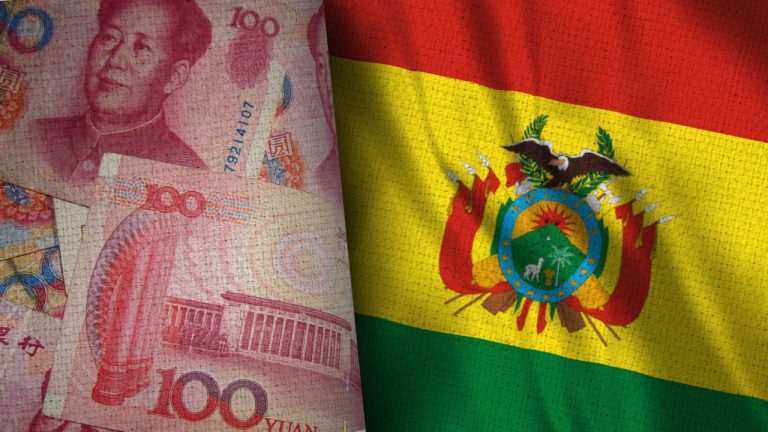
Economy Minister Marcelo Montenegro acknowledged that the Bolivian Central Bank is harnessing the Chinese yuan in its commercial settlements. The switch to using the Chinese currency has to do with the dollar scarcity that the country is facing, having to approve a law to sell part of its gold reserves for U.S. dollars.
Bolivian Central Bank Settling International Transactions Using the Chinese Yuan
The Bolivian Central Bank is carrying out settlements using the Chinese yuan in some of its international transactions. In a recent press conference, Economy Minister Marcelo Montenegro stated that the bank was already transacting using yuan, even without having Chinese banks in Bolivia.
However, Montenegro also explained that having a branch of a Chinese bank in the country would accelerate the adoption process of the currency in such transactions. He stated:
It is clear that sometimes it is not necessary to have a bank to carry out operations, but obviously having a Chinese bank or one close to the region can also facilitate operations much more smoothly.
The two governments of China and Bolivia are working to bring Chinese banks to Bolivia to act as intermediaries to ease the completion of transactions, according to statements from China’s Ambassador to Bolivia, Huang Yazhong.
Bolivia’s De-Dollarization Process
The president of Bolivia, Luis Alberto Arce, has called openly to de-dollarize Latam and support the introduction of new partners in the region, including BRICS countries like China. After assisting at the Common South Market Summit, he declared:
Our region is seriously affected by the restrictions imposed by the northern financial system, which limits financing options, making it necessary to reduce dependence on the U.S. dollar and diversify our economic relations.
Bolivia is facing a dollar crunch that affected the exchange rate of the U.S. dollar. In May, the government approved a law that allows it to sell up to half of its gold reserves for dollars on international markets to avoid a similar liquidity crunch.
The country is following in the footsteps of Argentina and Brazil, which have also shown signs of adopting the Chinese yuan in their financial systems. In March, Brazil inked a deal with China to conduct bilateral trade transactions using national currencies. Argentina also integrated the Chinese yuan into its system, allowing importers to settle transactions with China with the fiat currency.
What do you think about Bolivia’s advancement in using the Chinese yuan for commercial settlements? Tell us in the comments section below.
Bitcoin News








Leave a Reply
You must be logged in to post a comment.